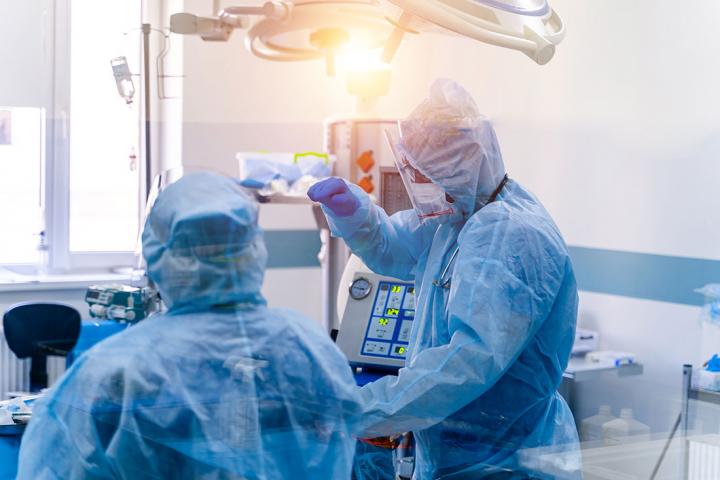DNA variations linked to severe Covid-19 risk
A large global study has identified genetic differences associated with Covid-19 patients requiring critical care.

Specific variations in DNA are associated with patients developing the most severe form of Covid-19, a large international study involving scientists from the Roslin Institute has found.
Factors such as smoking and high body mass index also cause patients to suffer from acute Covid-19, scientists reported.
The findings partially explain why some people become seriously ill with Covid-19 and could provide targets for future therapies using repurposed drugs, experts say.
Global collaboration
Scientists compared genetic information from almost 50,000 Covid-19 patients with that of samples provided by healthy volunteers from biobanks, clinical studies, and direct-to-consumer genetic companies such as 23andMe.
The study identified 13 DNA variations associated with people developing the most severe form of Covid-19. These genes help explain why some people become very ill with Covid-19, while others are not affected.
By pooling large amounts of data from 25 countries, scientists in the global collaboration were able to produce robust analyses more quickly, and from a greater diversity of populations, than any one group could have done on its own.
The study was led by the Covid-19 Host Genetics Initiative, a collaboration involving more than 3,300 researchers and 61 studies from 25 countries. The findings are published in Nature.
Potential treatments
Two of the 13 genetic markers identified so far occur more often among patients of East Asian or South Asian ancestry than in those of European heritage.
One of these two markers, located near a gene known as FOXP4, is linked to lung cancer. The variation associated with severe Covid-19 increases the gene’s activity, suggesting that inhibiting the gene could be a potential treatment strategy, experts say.
Genes known as DPP9, involved in lung cancer and pulmonary fibrosis, and TYK2, involved in some autoimmune diseases, are also associated with severe Covid-19.
Accelerating discovery
GenOMICC (Genetics of Susceptibility and Mortality in Critical Care), a study led by the University of Edinburgh and involving Roslin scientists, contributed data to the initiative.
Researchers will continue to identify additional gene regions associated with infection and severe disease, and will begin to study which factors lead symptoms to persist in some patients for months.
By working together across the whole world, we are able to accelerate discovery for the benefit of patients. This new international analysis builds on the colossal effort made by patients and intensive care research teams across the whole UK in the GenOMICC study.
** The Roslin Institute receives strategic investment funding from the Biotechnology and Biological Sciences Research Council and it is part of the University of Edinburgh’s Royal (Dick) School of Veterinary Studies. **
Related links
Covid-19 Host Genetics Initiative
Picture credit: Terelyuk / Shutterstock.com


